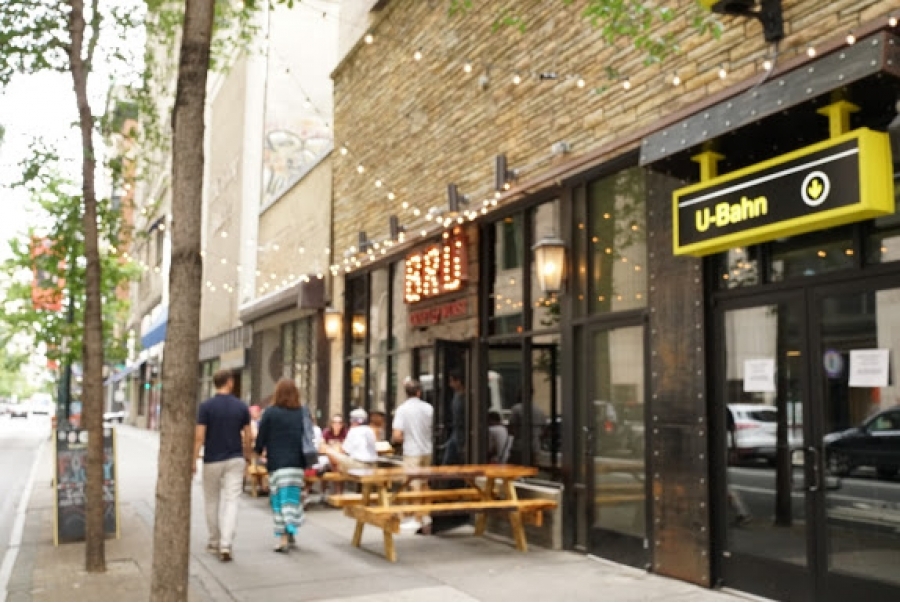Center City bar owner Teddy Sourias said he’ll remove a dress-code sign banning Timberland work boots at U-Bahn — after a complaint about the sign was conveyed to him by a PGN reporter.
“The [dress-code] sign will come down today,” Sourias said on Aug. 21. “It was never our intent to be discriminatory or to offend anyone.”
U-Bahn’s dress-code sign also banned sandals, flip-flops, “baggy or sagging jeans” and excessive jewelry on men.
Sourias said hats will continue to be banned at U-Bahn, but not hats worn for a specific reason such as religious affiliation.
Sourias, 36, said U-Bahn’s dress code was in place for about two years and always enforced in a reasonable manner. Sourias owns four other Center City bars: Bru, Finn McCools Ale House, Uptown Beer Garden and Cinder.
He said those establishments never had a dress code similar to U-Bahn’s.
U-Bahn, 1320 Chestnut St., doesn’t specifically cater to the LGBT community. But Sourias emphasized that everyone is welcome, regardless of race, ethnicity, economic background or LGBT status.
Sourias said he never received a complaint about U-Bahn’s dress code until one was conveyed to him this week by a PGN reporter. City officials never contacted him about U-Bahn’s dress code, he said.
The issue of Timberland work boots inside Center City bars has been a controversial one. Two LGBT venues — ICandy and Woody’s — allegedly banned the footwear. But the bars denied ever having such a policy.
Some critics recently blasted the Kenney administration for allegedly stereotyping LGBT bars in the Gayborhood as having racist practices and requiring 11 of them to attend antibias training.
Critics questioned whether city officials deliberately ignored racist practices at Center City bars that don’t specifically cater to the LGBT community.
Jeffrey Sotland, co-owner of Tabu, an LGBT sports bar in Center City, said Tabu was among 11 LGBT bars required by the city to undergo antibias training.
“We were never found to have done anything wrong, but we undertook all the training because there’s nothing wrong with the training,” Sotland told PGN. “But there’s an absolute double-standard if the city doesn’t force [U-Bahn] to undergo antibias training. The city was under attack. They addressed the situation to appease a part of the community by requiring 11 LGBT bars to undergo antibias training. But don’t hold me to a higher standard than non-LGBT bars. Hold me to the same standard.”
A spokesperson for the Philadelphia Commission on Human Relations issued this statement: “We recognize that certain dress codes, while neutral, can end up being discriminatory in application because a particular group of individuals may wear that certain article of clothing more than others. Dress codes must be applied to all customers. We encourage any person that feels as though they are discriminated against to contact PCHR to speak with an intake person at 215-686-4670 or [email protected]. The subject of our Oct. 25, 2016, hearing was discrimination in the gayborhood and within Philadelphia’s LGBTQ community and institutions. It was spurred on by the I Candy incident and other concerns raised by members of the LGBTQ community. At the hearings, we heard from many who complained about ‘gayborhood’ bars. The focus was on the bars, clubs, restaurants and non-profits that were mentioned, and mistreatment that had largely gone ignored or unaddressed. That is how the bars, clubs, and restaurants we trained were identified. Again, PCHR is here to listen and assist and we encourage people to contact us around issues of discrimination and bias. If we are not advised, we will not know.”
